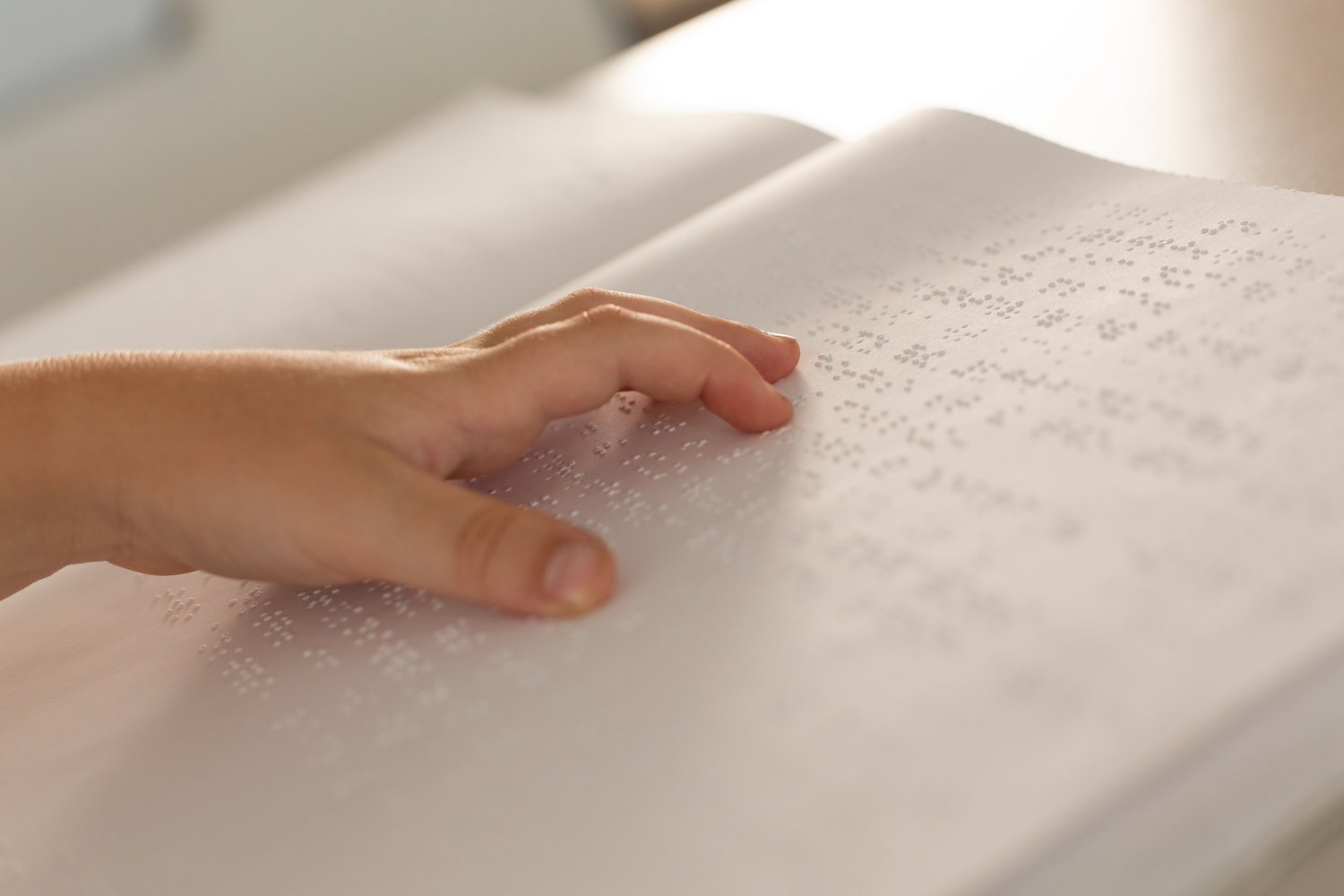Bibliociegos work is highlighted if we consider the statistics on schools. 62.2% of blind people have not completed secondary school, while people with visual loss account for 47.8%.
***
Manuel Rivadenera saw very little of the world when he was born, and then he could only see glimpses of light, but now he sees some lights, even if there is none. He studied up to the third grade at Helen Keller School in Nyonwa. The institution was suitable for the blind, but also for other disabilities. “It was a very strange phase because so many disabilities were combined and the teaching was a bit risky, in the sense that because the courses weren’t up to par, the teachers couldn’t teach the same thing to all the students,” he recalls.
Because of the performance of some students, they took a group and expelled them from the school. They pulled us out of the third grade. They basically kicked us out and told us like ‘go to the lions, because here we can’t teach you anymore'”.
Manuel had a hard time catching up compared to his other core roommates. “They didn’t teach me anything in class. I was about two months late, so it was very difficult to find schools that would accept you in schools,” he says. When the answer was finally positive, he faced other problems, such as discrimination from his peers. “I went through a phase, it’s like a duel, a duel of ‘Why am I like this and the others?'” ”
In spite of everything, he resisted and reversed the situation. “It is a difficult road to cross, deep down is acceptance and there I made many friends, for I came out of this exception well and began to make friends with my enemies. Later on, it was indeed another one of the cycle,” he says.
As a teenager, Manuel did not know anyone who was blind or visually impaired. Everything changed around 2010 when he dropped out of fourth grade. “I found myself with an orchestra and started making some friends.”
Having adjusted to his college life, and being one of the class, college life hit him hard. The innocence of moving to another place where everything is unknown was very difficult. His teachers were not willing to adapt in the same way that Manuel had tried to adapt to a world that was not inclusive. They told him “I can’t teach you, because they don’t pay me more because I teach you, which is different.” Far from being right, Manuel admits, he was a different person than the person they had to teach him otherwise.
“I used to tell them that I’m not the one who can’t learn. I can’t teach them to teach me, because I don’t know, I’m going to study for a reason,” he recalled.





